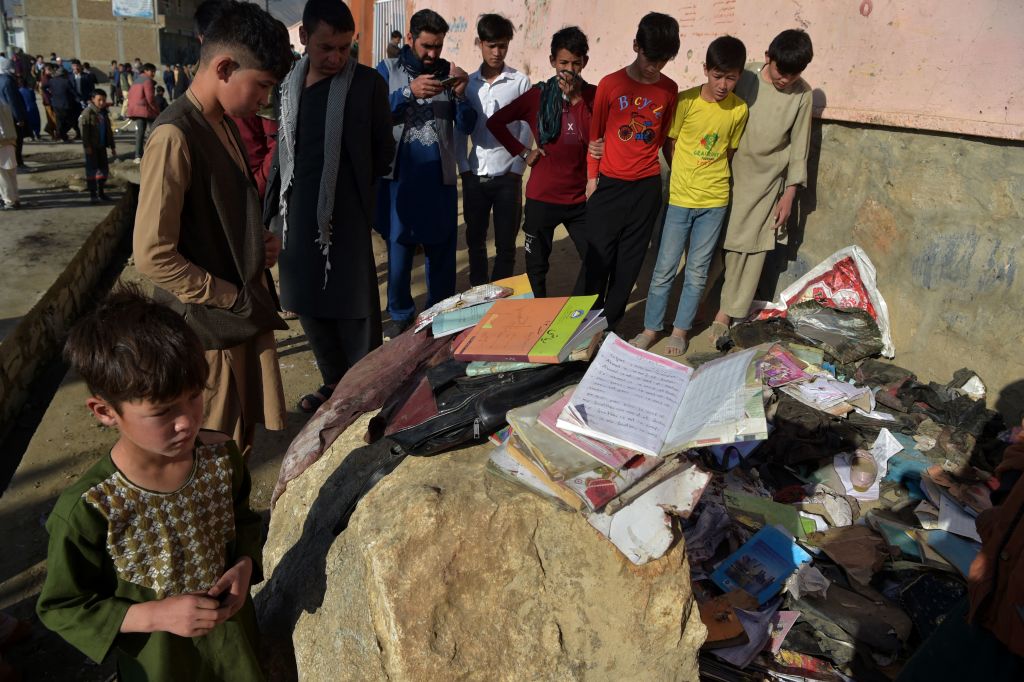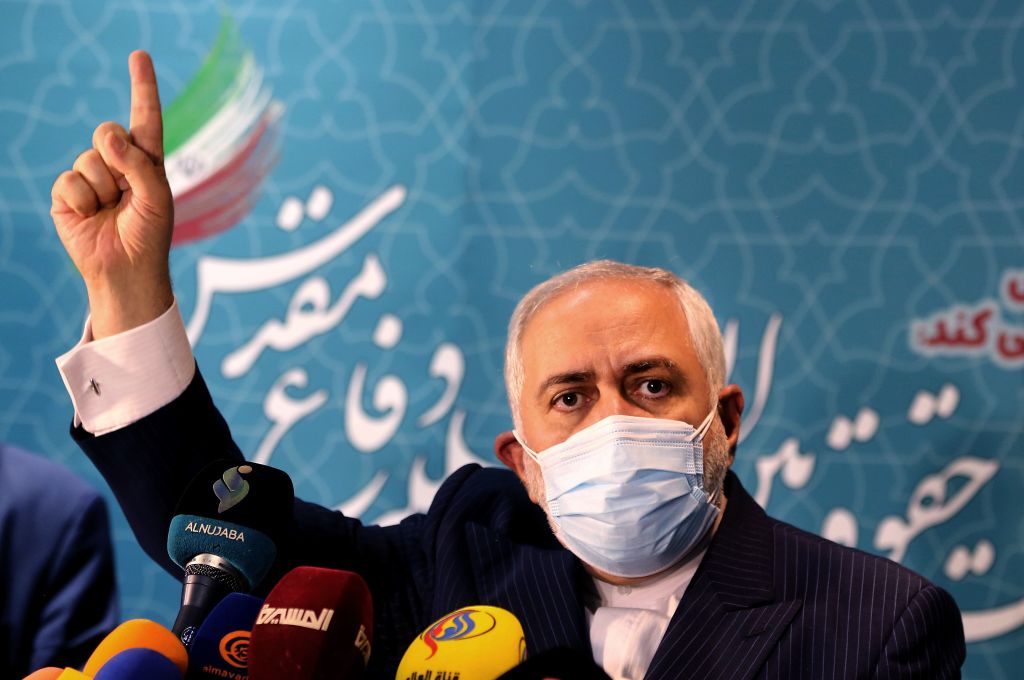Here's the simple, foolproof way to defeat ISIS: Kill them
The best way to deal with extremism is often by improving socioeconomic conditions. This is not one of those times.


A free daily email with the biggest news stories of the day – and the best features from TheWeek.com
You are now subscribed
Your newsletter sign-up was successful
The Obama administration has reportedly finally decided on a plan for dealing with ISIS: letting the next administration handle it. Now, to be fair, that approach will at least work for one person — Barack Obama — which is more than can be said for many other approaches. But it doesn't exactly put to rest the question perplexing Washington: How should the U.S. deal with the Islamic State?
At the risk of over-caricaturing, there are basically two approaches to ISIS: "Give 'em jobs," as infamously exemplified by State Department spokeswoman Marie Harf, and "kill 'em dead," as exemplified by most Republican presidential candidates.
The "give 'em jobs" perspective says that the real long-term way to defeat ISIS is through defeating the root causes of ISIS, and that these root causes are chiefly material in nature: ISIS can recruit young men because there aren't enough jobs out there, and so young men get depressed and become radical Islamists.
The Week
Escape your echo chamber. Get the facts behind the news, plus analysis from multiple perspectives.

Sign up for The Week's Free Newsletters
From our morning news briefing to a weekly Good News Newsletter, get the best of The Week delivered directly to your inbox.
From our morning news briefing to a weekly Good News Newsletter, get the best of The Week delivered directly to your inbox.
This perspective is easy to mock. Sonny Bunch of the neocon mouthpiece (and I mean this in the best possible way) Washington Free Beacon commented: "This flies in the face of literally the entirety of human history, through which, time and again, we have seen people killing other people lead to victory in armed combat."
And before I go on to explain why Bunch is right and Harf wrong, I should start off by saying that in general, the "give 'em jobs" approach has a lot to recommend it.
In general, you should probably address the root causes of conflicts in order to deal with them for good. World War I featured a lot of people killing other people on the way to victory in armed combat, but since the ensuing peace didn't solve enough of the underlying root causes of the conflict (and created new ones), millions of young men died for nothing and World War II happened. We finally learned our lesson the second time around, which helps explain why Europe has been at peace for 70 years now, which is unprecedented in European history.
And, in general, bad socioeconomic conditions do provide a fertile soil for extremism. Over the long run, the best way to deal with extremist movements really is to improve the underlying conditions.
A free daily email with the biggest news stories of the day – and the best features from TheWeek.com
All of this is generally true, but it's also beside the point.
ISIS isn't Greece's Golden Dawn or France's Front National, once fringe political parties that have seen their numbers swell amidst economic hardship. No, the Islamic State is a small cadre of fanatics. While undoubtedly some ISIS members are not-very-bright jobless bums drawn into it by a lack of options, many of them are also highly educated men who happen to genuinely believe what ISIS teaches.
The gazillionnaire Osama bin Laden — to put it mildly — did not turn to extremism because of problems with unemployment.
So yes, in general, you should address conflicts by addressing the root causes. But in some cases, conflicts are caused not by socioeconomic root causes, but by a bunch of people who genuinely desire to go on murderous rampages for deeply held reasons. When the latter case arises, there is really only one way to stop them: to kill them.
It might be uncivilized. It might be unsubtle. It is also, sometimes, correct.
This point of view might seem wholly lacking in nuance. But there is nothing more lacking in nuance than the view that no situation lacks nuance. Every spectrum has edges.
It would have been great if Germany had addressed the underlying root causes of the rise of the Nazi Party in the early 1930s. But by the time Adolf Hitler was in power and Germany was run by a clique of die-hard Nazis, the problem was not getting anybody jobs. The problem was that extremely well-armed and determined people wanted to conquer the planet. And the way to deal with that problem was to kill enough of them that they eventually gave up on the attempt.
ISIS poses a grave danger to the stability of the Middle East. It's also plain evil. It's in everybody's interests to defeat it. It's also the right thing to do (even the Pope says so!). The way to do that is to kill as many of its members as possible.
Yes, it really is that simple.
Pascal-Emmanuel Gobry is a writer and fellow at the Ethics and Public Policy Center. His writing has appeared at Forbes, The Atlantic, First Things, Commentary Magazine, The Daily Beast, The Federalist, Quartz, and other places. He lives in Paris with his beloved wife and daughter.
-
 The President’s Cake: ‘sweet tragedy’ about a little girl on a baking mission in Iraq
The President’s Cake: ‘sweet tragedy’ about a little girl on a baking mission in IraqThe Week Recommends Charming debut from Hasan Hadi is filled with ‘vivid characters’
-
 Kia EV4: a ‘terrifically comfy’ electric car
Kia EV4: a ‘terrifically comfy’ electric carThe Week Recommends The family-friendly vehicle has ‘plush seats’ and generous space
-
 Bonfire of the Murdochs: an ‘utterly gripping’ book
Bonfire of the Murdochs: an ‘utterly gripping’ bookThe Week Recommends Gabriel Sherman examines Rupert Murdoch’s ‘war of succession’ over his media empire
-
 Bombing at girls' school in Kabul kills at least 50, including students
Bombing at girls' school in Kabul kills at least 50, including studentsSpeed Read
-
 Garland says DOJ is 'pouring its resources' into stopping domestic terrorists 'before they can attack'
Garland says DOJ is 'pouring its resources' into stopping domestic terrorists 'before they can attack'Speed Read
-
 Suspected Israeli cyberattack on Iranian nuclear site complicates U.S.-Iran nuclear deal talks
Suspected Israeli cyberattack on Iranian nuclear site complicates U.S.-Iran nuclear deal talksSpeed Read
-
 North Korea fires 2 ballistic missiles into sea
North Korea fires 2 ballistic missiles into seaSpeed Read
-
 U.S. airstrikes target Iranian-backed militia facilities in Syria
U.S. airstrikes target Iranian-backed militia facilities in SyriaSpeed Read
-
 Rochester police who killed Daniel Prude during mental health crisis won't face charges
Rochester police who killed Daniel Prude during mental health crisis won't face chargesSpeed Read
-
 Mike Pence's 'nuclear football' was also apparently at risk during the Capitol siege
Mike Pence's 'nuclear football' was also apparently at risk during the Capitol siegeSpeed Read
-
 Trump publicly attacked Pence during the Capitol riot knowing Pence was in trouble, GOP senator suggests
Trump publicly attacked Pence during the Capitol riot knowing Pence was in trouble, GOP senator suggestsSpeed Read
